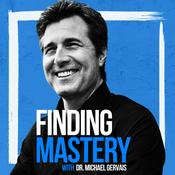132 episodes

Hiding in Plain Sight: Tips for Tackling CELPIP Reading Task 2
2026/1/06 | 25 mins.
Ever had one of those moments where you’re convinced you bought something, but it just vanishes into thin air? I found myself in that exact situation with juice, thinking I had purchased some on my last grocery trip. But when I went to get it for breakfast a day later...it was nowhere to be found! Turns out, my juice was merely hiding in plain sight, just like the information you may need for Reading Task 2 on the CELPIP exam. This episode dives into the importance of previewing diagrams and emails before diving into questions. I’ll share actionable strategies to help you avoid the common pitfall of rushing in and missing critical information. Join me as we unravel the ins and outs of this reading task to boost your effectiveness during the test!Takeaways: Understanding the importance of previewing diagrams can significantly improve your performance on reading tasks. Don't rush into answering questions; take a moment to identify key information first. Building your vocabulary daily through diverse reading can help you recognize paraphrasing in exam questions. Recognizing keywords in both the diagram and the email is crucial for accurately answering questions during the exam.

Step Out Of Your Comfort Zone To Build Your CELPIP Skills + PODCAST Update
2025/12/23 | 13 mins.
Improving your speaking skills in English can feel like a daunting task, especially when preparing for the CELPIP exam. I’ve spent years sticking to scripted, well planned episodes for this podcast, but I’ve realized that this comfort zone has kept me from growing. I’ve decided to challenge myself by ditching the script and embracing a more spontaneous approach. By using bullet points instead and committing to shorter episodes, I’m aiming to reduce my workload while also modeling a crucial lesson: stepping out of your comfort zone is essential for growth. As I work my way through this new style, I encourage you to reflect on your own habits. If speaking English makes you nervous, you might be avoiding it altogether. Let’s change that together. This month, I invite you to engage in one short, spontaneous conversation in English each day. By practicing these small interactions, you’ll gradually build confidence and improve your skills while also learning to embrace the imperfect nature of real conversations. Remember, confidence in speaking comes from practice, not from textbooks or classes. Let’s take this challenge on together and see how we can grow! Are you in?Takeaways: Improving your English speaking skills, particularly for the CELPIP exam, requires stepping out of your comfort zone. Engaging in spontaneous conversations, even for short durations, builds confidence and fluency in speaking. Avoiding opportunities to speak English due to fear can limit your progress and language learning. Setting achievable goals, like daily 5 minute conversations, can significantly improve your English proficiency over time. Don't be afraid of mistakes while speaking! They will help you develop a confident, natural speaking style.

Don't ignore these warning signs in your CELPIP prep journey
2025/12/09 | 32 mins.
Life can throw some serious curveballs at us, and sometimes it feels like we’re running on empty. I just had a wild night dealing with car troubles, helping my son jump-start his dead battery, only to find my own vehicle signalling trouble shortly after. It got me thinking about those warning signs we often ignore in our lives—just like I ignored the alarm on my dashboard. I realized that burnout can sneak up on us when we least expect it, and it’s crucial to pay attention to those early indicators before we stall completely. In this episode, I dive into some of the signs of burnout, share personal experiences about a time I burnt out as well as a far more serious example of a colleague who burnt out and could not return to work. Listen to hear some practical ways to recharge and find balance before you reach a breaking point. So, let’s chat about how to keep our emotional batteries charged and avoid those dead ends.Takeaways: It's crucial to pay attention to the warning signs in our lives, much like we would with a car's dashboard indicators. Ignoring them can lead to serious consequences. Experiencing burnout often looks like exhaustion and disengagement from activities we used to enjoy, signalling that something needs to change in our routine. Reducing unnecessary pressures in our lives can be a huge help for your mental health, allowing you to recharge and focus. Finding simple activities that can uplift your spirit, like walking or spending time with loved ones, can be incredibly helpful for combating feelings of burnout and exhaustion. Put these ideas to work! If you are getting some of these warning signals in your life, what are you going to do about them? Ignoring them won't make them go away! I hope you'll find an activity that helps you recharge, and that you're able to reduce the load you are carrying, and if needed: that you find someone you can talk to about this.

How Can I Improve My Speaking and Vocabulary Skills in English?
2025/11/25 | 21 mins.
Struggling with speaking skills? You’re definitely not alone, and that’s where we kick things off. I dive into the common frustrations we face when trying to express ourselves in English, especially when nerves kick in or when we feel our vocabulary isn’t quite up to par. I share how to shake things up and move beyond those surface-level conversations we often get stuck in, which is what will really help you build your fluency skills in English. Deeper, more engaging conversations challenge us to use (and learn!) new words and phrases which is exactly what you need to have happening often if you want to see your speaking and vocabulary skills improve. Takeaways: Practice your English daily, but ensure that your conversations go beyond surface-level exchanges. Aim for deeper discussions that challenge your vocabulary and fluency. If you're feeling stuck in your English speaking, take a moment to identify the types of practice you engage in every day. Are they meaningful or just routine? Don't let nerves hold you back from speaking. Embrace opportunities to express yourself, even if it feels uncomfortable at first, and push through your comfort zone. Develop a vocabulary journal to track new words and phrases. Write them down and commit to using them in conversation multiple times to reinforce your learning. Challenge yourself to initiate conversations on topics you usually avoid. This pattern interruption can help you break free from predictable dialogue and foster growth in your language skills. Recognize that making mistakes is a part of learning. Every time you struggle to find the right word, you're identifying areas for improvement and growth in your vocabulary.

How to be sure you'll get a 7 on the CELPIP
2025/11/11 | 41 mins.
If you're aiming for a CLB 7 on the CELPIP exam, knowing whether you're ready before stepping into the test room is crucial. We dive into how you can assess your English proficiency and boost your confidence, potentially saving you time, money, and stress. Achieving that coveted score isn't a mystery if you've got a solid intermediate level of English, so we outline what that really means and how to gauge where you stand. We also discuss practical strategies for preparation and what skills to focus on to ensure you're exam-ready. By the end of this episode, you'll have actionable insights that help you navigate your journey toward a successful CELPIP experience.Takeaways: To confidently aim for a CLB 7 on the CELPIP exam, assess your English proficiency realistically before the exam date. Being able to engage in spontaneous conversations with strangers indicates a solid intermediate level of English skills. Understanding and expressing your opinions clearly is crucial for reaching a CLB 7 on the CELPIP exam. Regularly using English in daily situations shows you're likely at an intermediate level, preparing you for the CELPIP exam. Practice handling unexpected phone calls in English to boost your confidence for the CELPIP exam. Set aside one to three months for targeted preparation to familiarize yourself with the CELPIP exam format and expectations.
More Education podcasts
Trending Education podcasts
About The CELPIP Success Podcast
Listen to The CELPIP Success Podcast, anything goes with emma chamberlain and many other podcasts from around the world with the radio.net app

Get the free radio.net app
- Stations and podcasts to bookmark
- Stream via Wi-Fi or Bluetooth
- Supports Carplay & Android Auto
- Many other app features
Get the free radio.net app
- Stations and podcasts to bookmark
- Stream via Wi-Fi or Bluetooth
- Supports Carplay & Android Auto
- Many other app features


The CELPIP Success Podcast
download the app,
start listening.





































